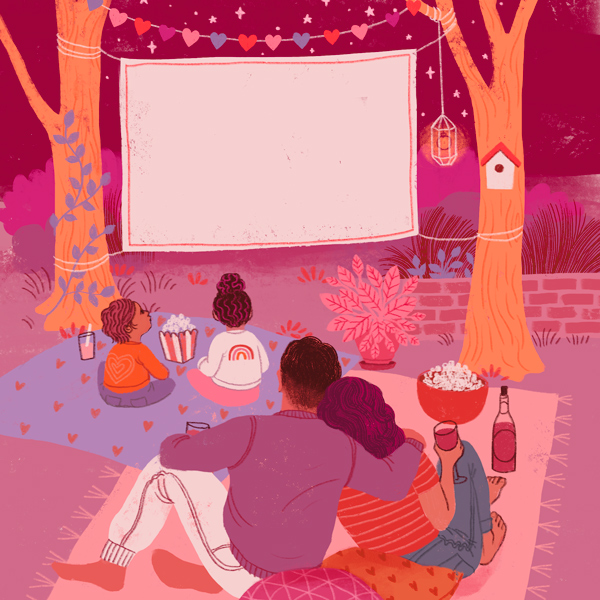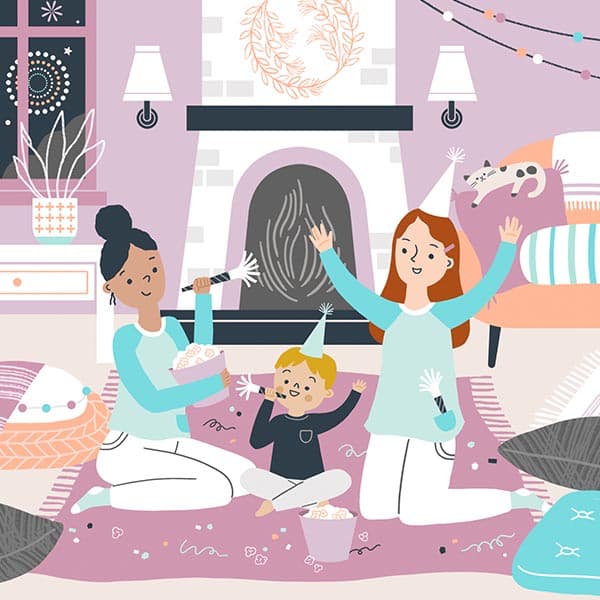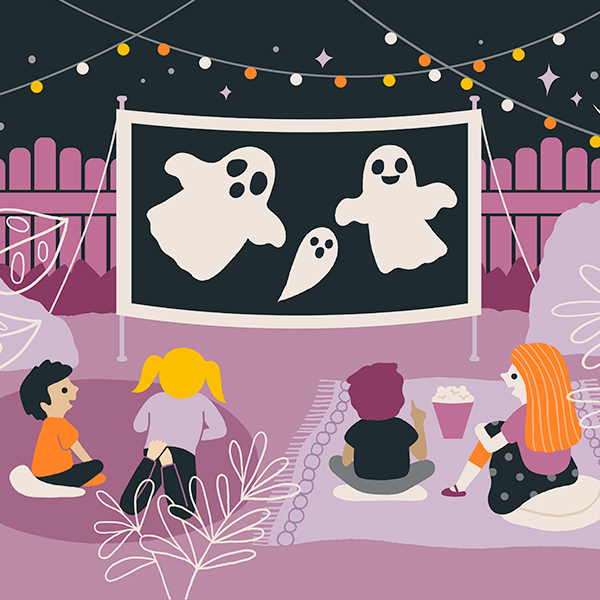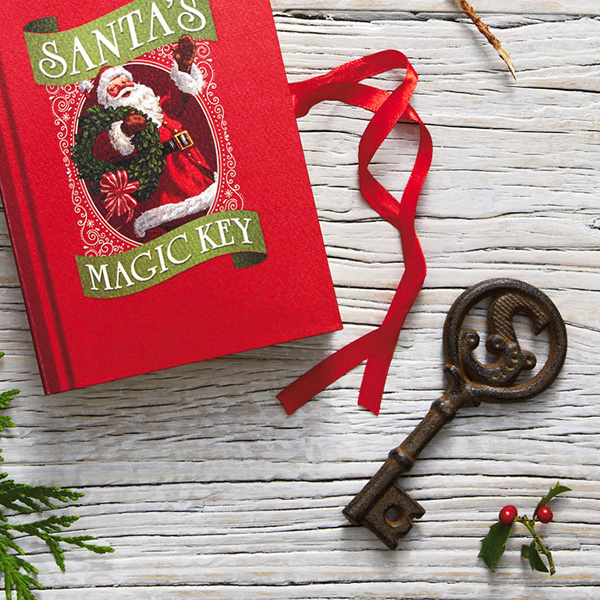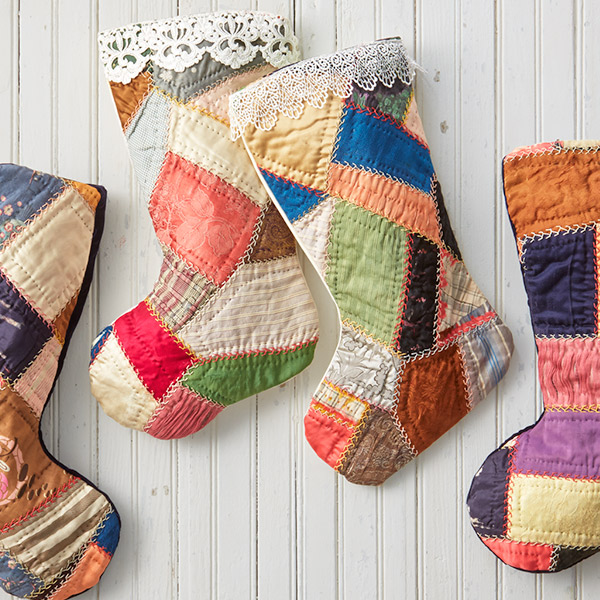Holiday traditions: Why they matter, how to keep them, and when to let them go
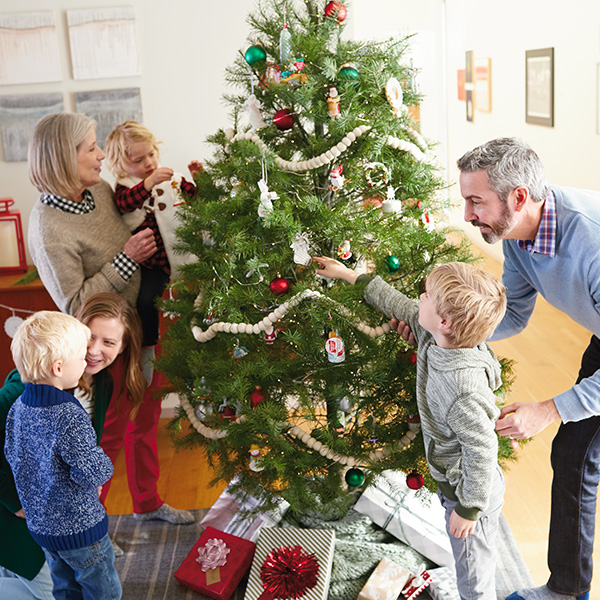
Taking part in holiday traditions and rituals helps us feel like we’re a part of something bigger. They give us a sense of where we came from and why we’re here. Sharing experiences—like foods, sights, smells, and activities—links us to our past and to each other.
So it’s no wonder the traditions we follow with the people we care about mean so much.
I chatted with different families to find out what makes the way they observe and celebrate different holidays unique, and I encountered lots of strong feelings—whether they were holding on to favorite traditions, letting them go, or creating new ones.
Inspired? Create and share by tagging @HallmarkStores.
Keeping—and blending—favorite holiday traditions
As families grow and change, hanging onto the best of our customs provides a sense of continuity in our own lives. It keeps us connected to our ancestors and to our cultural heritage. These long-held traditions instill pride and remind us that no matter how far apart we are, we have people.
Knowing these are “your” traditions makes them fun to share and meaningful to keep, especially when families are joined through marriage. And while no two families are exactly alike, there are similarities in the traditions we include.
Food plays an important part in almost every holiday, and if that food is missing from the festivities, we notice. A Japanese friend prepares traditional Japanese foods for both Christmas Day and New Year’s Eve.
“It just wouldn’t be the holidays without them,” she says.
One newlywed explains how she found a way to include holiday foods from her side of the family as well as the ones her husband links to Christmas.
“I make my favorites—the soul food I grew up with—for us to share on Christmas Eve. Then, when we go to his family’s house the next day, we enjoy their traditional Christmas dinner.”
Other traditions may have to be negotiated, too: “The holiday traditions for my wife are a lot more food-based than mine ever were. She has special drinks and certain dishes she likes to make,” one husband explained. “But when it comes to gifts, her family keeps that pretty low-key—which is very different from my family. So for them, I adjusted my gift-giving tradition a little bit to align with theirs.”
When the traditional celebration passes to a new generation to host, blending family traditions helps everyone feel included.
A mom in a big blended family explains: “I started to introduce some of the traditions from my side of the family to my husband’s family, such as reading a relevant scripture from the Bible before dinner and singing Christmas carols in the family room after eating.
“The big change was integrating my family members and some of the special traditions from our past holiday experiences into my new extended family so that I felt we were honoring both in a meaningful, inclusive way.”
For those who don’t have strong traditions for a holiday, being a part of someone else’s celebration can be easy.
“My family doesn’t have big Fourth of July celebrations,” a newly married man says, “My wife’s family does, so we spent that holiday with her family. It was a new experience for me and we had a lot of fun.
“So far, I don’t think there’s been as much mixing of traditions as adding—we participate in some of each other’s traditions and we’ve continued to do some things separately.”
Whether keeping traditions intentionally or out of habit, or adjusting them to make them fit a new family better, it helps to be thoughtful about planning celebrations. Asking each other what’s important—whether it’s a potato salad recipe or where you spend the night—can help you decide where to give and take. That way, however you celebrate, you’re spending your energy and effort on the things that strengthen connections to one another.
Deciding when to let go of traditions
Perhaps the most difficult part of traditions is breaking them. Events like a death in the family, a major move, or an evolution in our beliefs can trigger the need to alter a once-cherished ritual.
It may be challenging, especially if other family members are affected, but being open and direct about the need for change can help. A couple of ways to start the conversation:
- When your family is together for a casual gathering, bring up your thoughts on higher-stakes events—like who hosts holiday dinners, where family reunions are held, or about that beach house you rent together every summer.
- Carefully present your idea in a group email. That’s always a risk—even the most carefully worded message can be taken personally or misconstrued—but email conversations at least let you carefully consider your thoughts before responding.
- Suss out the reaction by starting with family members known for level-headedness. They can tell you if you’re worrying needlessly—or if you’re about to walk into a hornets’ nest.
You can be helpful as family members get older or move further away or their families grow to offer them the understanding and flexibility they need. And if you’re experiencing hurt or anger at an unwelcome change in traditions, talk through your frustrations with others who’ve gone through a similar adjustment to learn how they’ve managed.
A recently married friend explains how she is navigating change in her family: “Our family is spread out across the country, and my siblings and I have been trying to celebrate the holidays in ways that will be better for us all.
“Last year was our first successful year of bucking the system. We rented a big house here in town and spent Christmas morning doing our regular traditions—open stockings first, Mom’s potato breakfast, and then presents. It really showed Mom that Christmas isn’t about the place, it’s about the people. Hopefully she’ll be open to a more ‘non-traditional’ Christmas now.”
A woman who had lost her husband when they were both still young said she hung onto some of the traditions they’d had as a couple. “Every year I put up his stocking and put ornaments on the tree that were meaningful to us. Even after I’d remarried and we had a child, my new husband joined me in celebrating the memory of a man he’d never met.
“A few years ago it felt right to stop putting up his stocking, though I still hang the ornaments. I’m grateful I’ve been able to do what I needed to heal.”
Of course, in other cases, people admit they are simply enduring long-held customs and can’t wait to let things go. A few Thanksgivings ago, we looked up from our traditional turkey day spread and admitted to each other we didn’t really like turkey.
For the next few years, we picked up several dishes from our favorite Indian restaurant and enjoyed the time we could spend with each other by not cooking all day. Last year our son cooked his signature spaghetti and meatballs, and we were extremely thankful.
We weren’t alone in changing things up: A neighbor revealed that he and his family switched from turkey to tamales. For them, it makes the day more relaxed. As for Christmas, he says, “We felt the holiday pressure so much it finally pushed us to look at things differently. Now we do the things that work for us and have let go of the rest.”
Sometimes just talking about the possibility for a change can be enough to keep everyone happy. A young mother of two shared this story: “If something isn’t working for me and my husband, we are super-quick to dismiss it. We have no need to keep doing something that doesn’t feel right for our family.
“But it’s different with my immediate family. We just talk in circles until everyone is heard—then we typically just keep the non-relevant traditions alive because no one really wants to stir the pot!”
Creating new family traditions
Life changes like moving to a new home, getting married, or having a baby mean the chance to create new family traditions and your own rituals.
Sometimes a new tradition starts organically. A co-worker’s “spoiled” baby sister wanted to open a present on Christmas Eve. Their Granny allowed it and from that moment, their Christmas Eve trinket-opening tradition was born.
As any new parent knows, having a baby changes everything.
“Having a baby adds a whole new level of joy to the holidays,” one mom said. “Before, traditions were just what naturally happened over time in our family, but having a child made us more intentional. We started making our own traditions instead of simply conforming to the ones my family made.”
Many empty nesters are noticing that as their kids leave home, they naturally simplify and focus on being together at the holidays instead of scheduling activities.
And sometimes, big life changes just meant little tweaks to traditions. A friend who recently moved into a new home explains, “Even though the traditions and the items are all the same, the placement is different. It was exciting to pull out the bin of Christmas decor and find new homes for all my cherished pieces. It was also a really good excuse to buy some new stuff.”
Whether you’re keeping, breaking, or creating a holiday tradition, a little flexibility and extra communication can help ensure that everyone stays happy. Because our traditions are blended into the relationships we have, it’s important to keep the ones that enrich our bonds, let go of the ones that might be straining them, and create new ones that bring us even closer together.
Shop Christmas
See allYou may also like
See more-
Valentine's Day 32 sweet Valentine’s Day ideas for family fun at home
Who do we love the most in the whole world? Our families. So we’ve pulled together all our best tips for making Va...
-
Care & Concern Planning together: End-of-life memory-making and memory-keeping
In 2019, I lost my father to cancer. When his tumor was discovered, we were bombarded by hospitals, tests and then, u...
-
New Year's 22+ ideas for a fun, family-friendly New Year's Eve
When I was a kid, nothing made me feel cooler than being included in grown-up stuff. On New Year’s Eve, getting to ha...
-
Christmas 45 ways to make Christmas magical for kids
As parents, we want to make the holidays feel magical for our children. We want to bring the season to life, giving t...
-
Halloween 25+ ideas for creating Halloween family fun at home
So many of my favorite childhood memories are of Halloween family fun: sorting and trading candy with my sister, dres...
-
Halloween Family Halloween movie night recommendations
Looking for a Fall family night activity? Round up the kids for an evening of Halloween shivers and snacks. We’ve ...
-
Christmas 25+ Things People Who Love Christmas Know
Does your heart skip a beat when you hear the first Christmas song on the radio? Does your Advent calendar start i...
-
Christmas What is a Santa Key?
Not everyone grows up in a house with a chimney. At Christmastime, this can present a very real problem: Santa will a...
-
Anniversary Anniversary date ideas: 7 Creative memories to make together
Whether it’s your first anniversary or you’ve spent many wonderful years together, coming up with a way to celebra...
-
Christmas Memories in the making: DIY Christmas stockings
Maybe you’re blessed, like me, with many inherited quilts, but you don’t quite know what to do with them once they...
-
Family Building memories
We’ve all had that experience of a DIY project turning into something more than what we expected. When Hallm...

